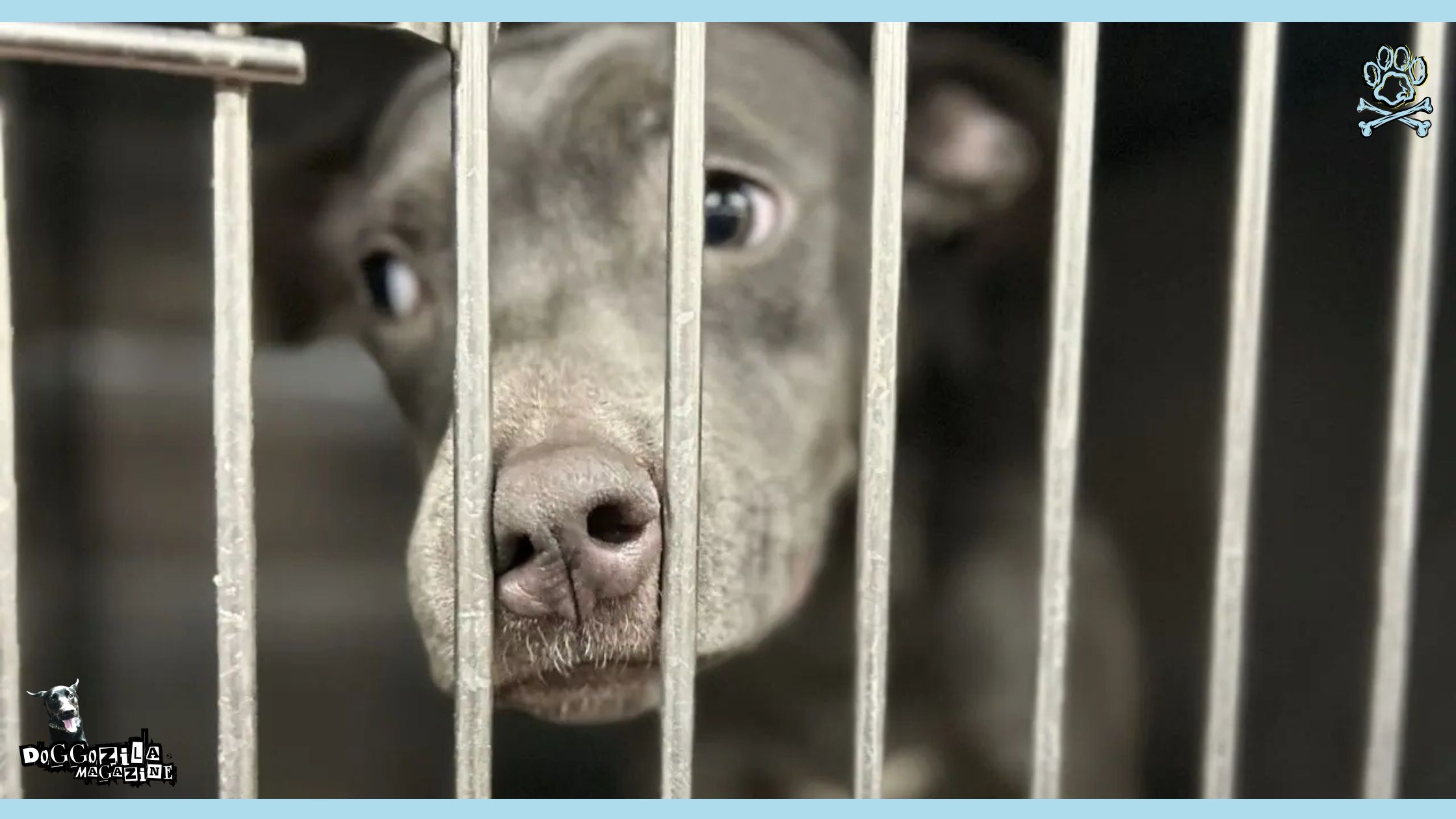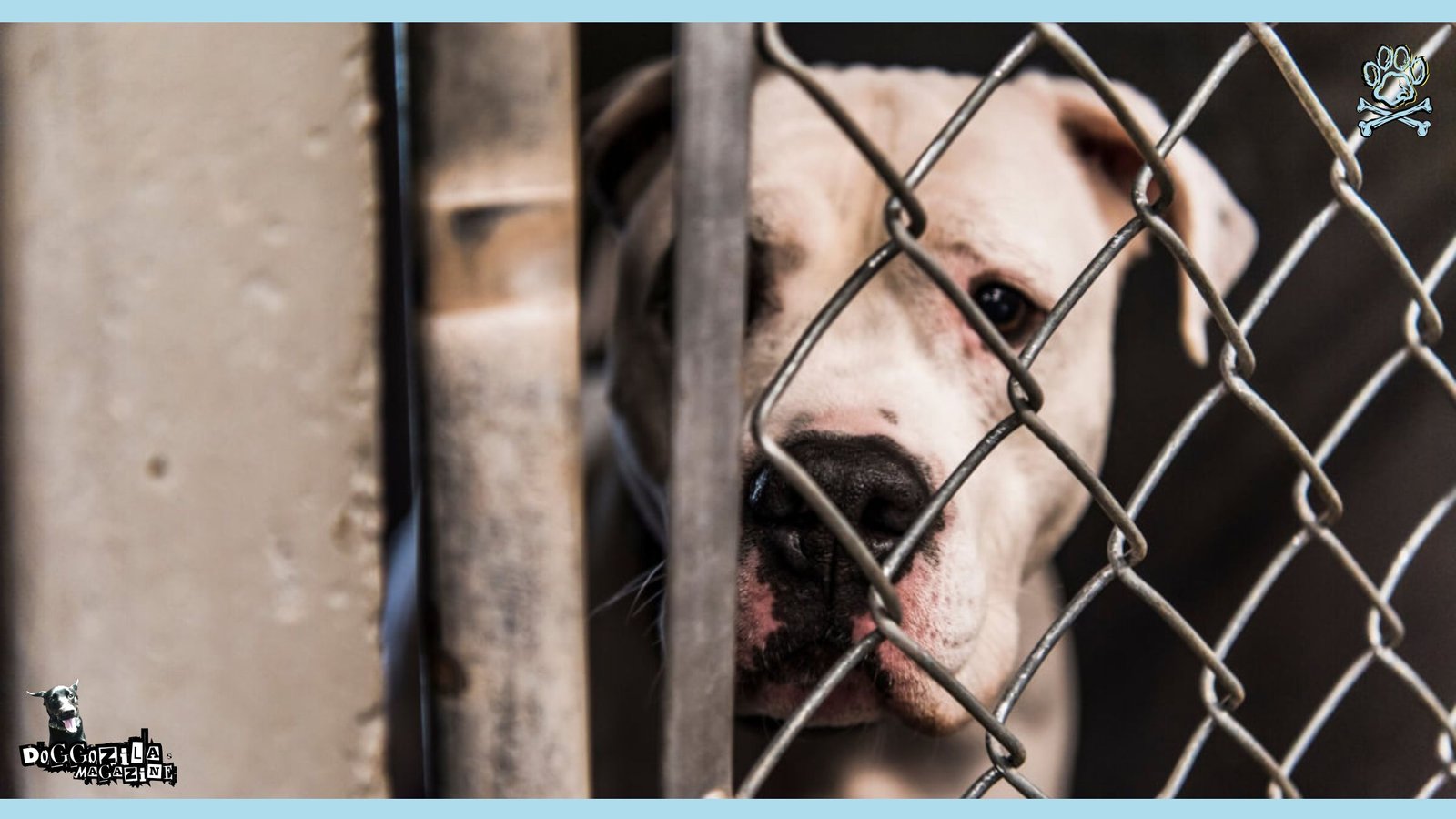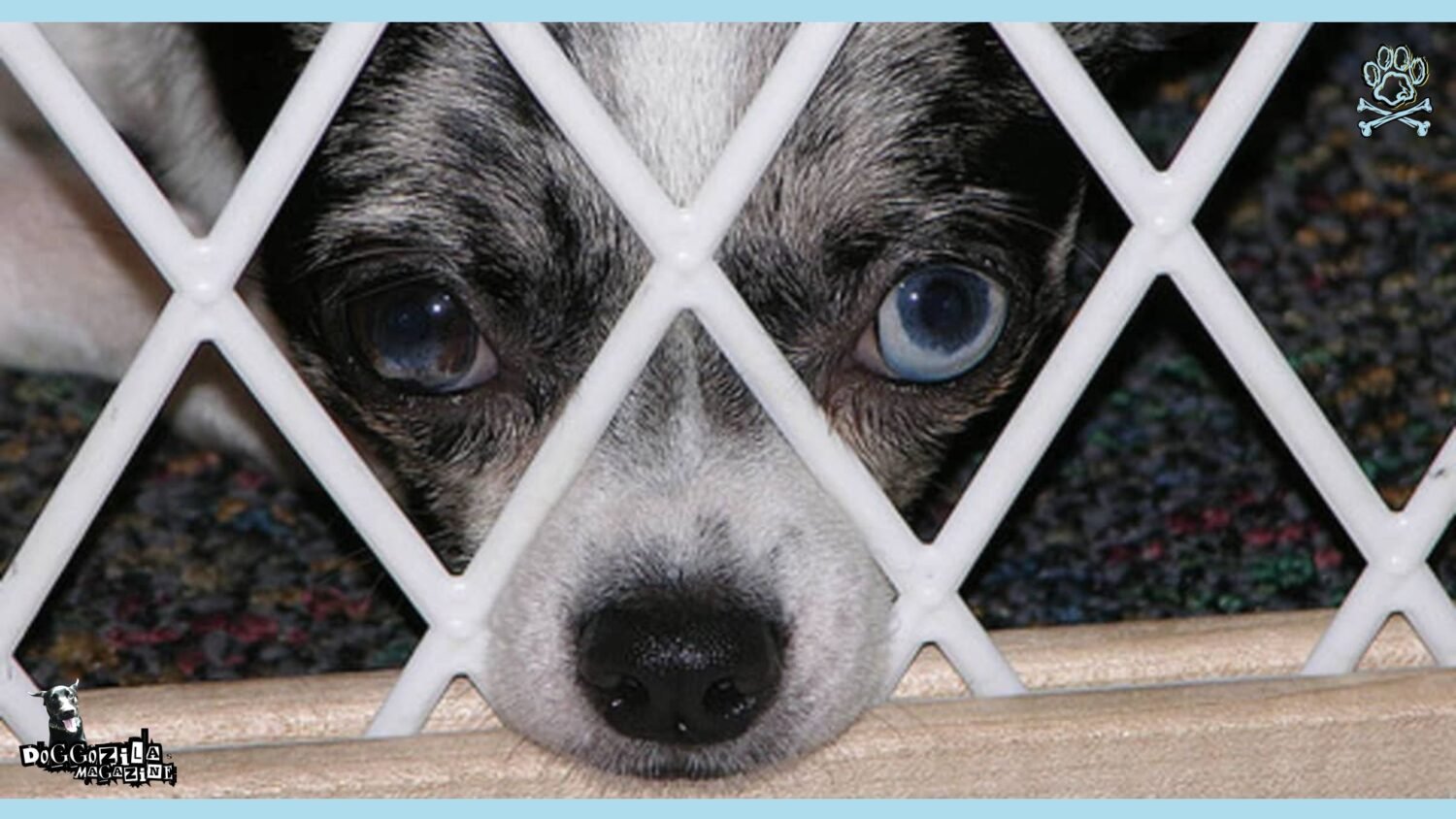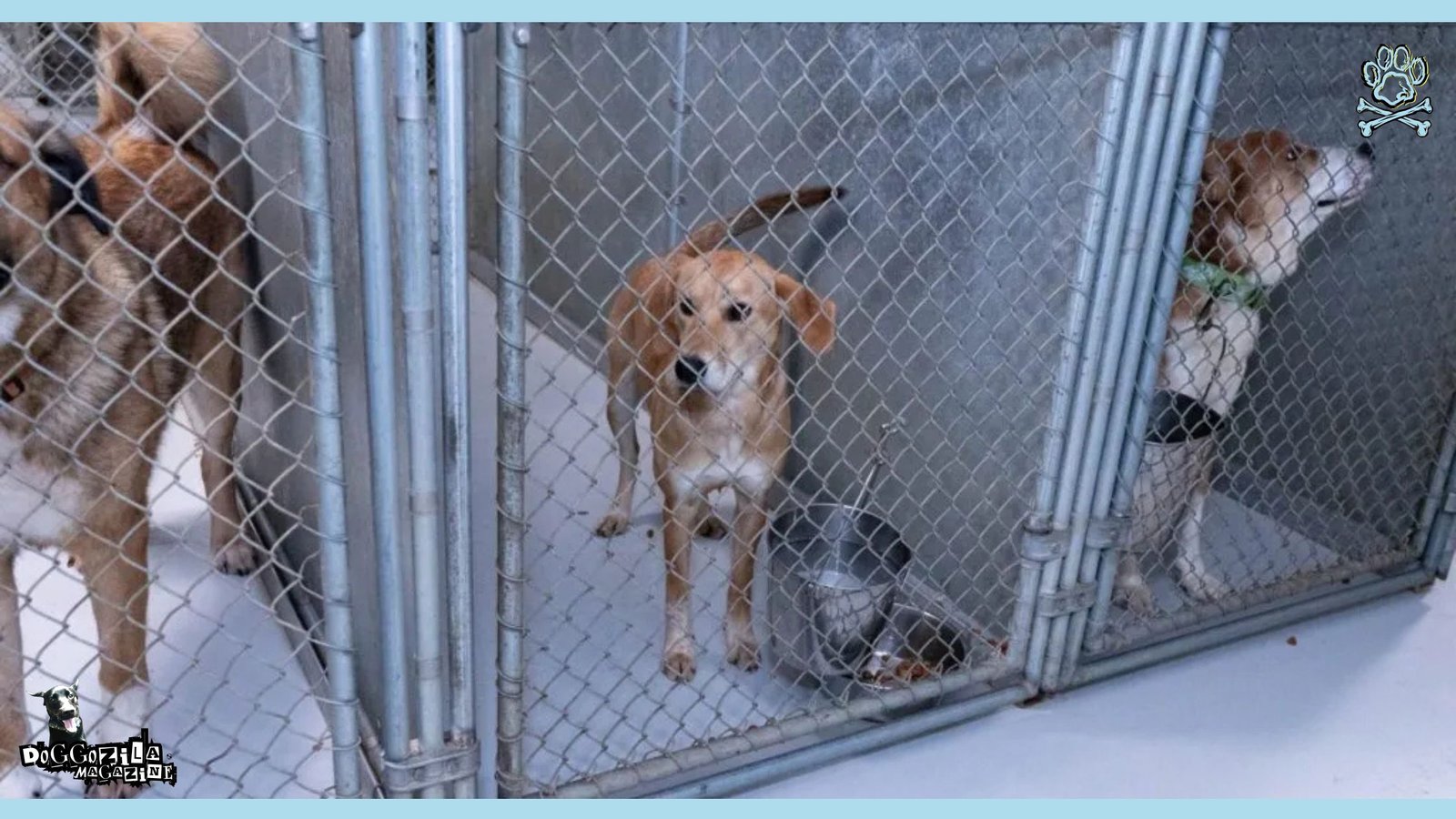Are you ready to discover the reality behind the most common dog breeds waiting in shelters? These furry friends long for loving homes. Many popular purebreds seek devoted companions. Misconceptions about shelter dogs are common. But the truth about sought-after breeds like American Bulldogs, Pit Bulls, and Labrador Retrievers will surprise you.

UNDERSTANDING THE TRENDS AND EXPERIENCES OF THE MOST COMMON DOG BREEDS IN SHELTERS
Animal shelters play a crucial role in rescuing, rehabilitating, and rehoming dogs. However, certain breeds are more commonly found in shelters than others, often due to a combination of factors including breed popularity, owner surrender rates, and breed-specific legislation. This article delves into the most common dog breeds in shelters, exploring the reasons behind these trends, sharing real-life experiences, and providing data-driven insights.
Data from various animal welfare organizations and shelters indicate that certain dog breeds are consistently more prevalent in shelters. These breeds often include Pit Bulls, Chihuahuas, Labrador Retrievers, German Shepherds, and mixed breeds. Understanding why these breeds end up in shelters can help address the root causes and improve adoption rates.
Understanding Most Common Dog Breeds in Shelters and Their Misconceptions
One widespread myth is that shelters only house mixed-breed dogs. But they’re home to many purebreds, like popular Labrador Retrievers and intelligent German Shepherds. Many think a dog’s breed solely determines personality and behavior. However, individual upbringing and traits matter more than breed.
Shelters have various breeds awaiting adoption. Breed stereotypes often lead to misconceptions about dogs’ true natures. With proper care and training, any breed can thrive in a loving home. An open mind and research are key to finding the perfect furry companion.
Sometimes, people think a dog’s breed determines its behavior. But this isn’t always true. A dog’s upbringing matters a lot. For instance, a German Shepherd raised with love and training will likely be a gentle, loyal pet. But one mistreated may act aggressively, no matter its breed. Every dog is unique. Judging dogs by breed stereotypes can make us overlook great companions at shelters.
🔑 Key Points: Don’t let myths about breeds stop you from finding the perfect dog. Each pup has its own personality, regardless of breed labels.
Debunking Most Common Myths About Breeds Labeling in Dog Shelters
Many think shelter dog breed labels are always correct. But this isn’t so. Staff guess breeds based on looks, but without DNA tests, it’s impossible to know for sure. Even experts are often wrong about visual breed identification.
The “Labrador” you see may actually be a mixed breed. Relying only on labels can make you overlook great dogs just because of looks. When adopting, look beyond the label to find the right fit.
The Surprising Truth: Purebreds in Shelters
You may assume dog shelters only house mixed breeds. But surprisingly, many purebreds end up in shelters too! Reasons vary – maybe an owner’s situation changed or the dog wasn’t right for their home. No matter their breed status, these dogs deserve loving families. So don’t discount shelter dogs based on assumptions. Take the time to meet them. You could find your perfect purebred match!
The key is keeping an open mind. Look beyond labels and get to know each dog as an individual. Remember, a loving home is all any dog really needs to thrive. Contrary to popular belief, purebred dogs frequently end up in shelters. In fact, some estimates suggest that up to 25% of dogs in shelters are purebreds.
There are many reasons why a purebred dog might find itself in a shelter, such as:
- Overbreeding
- Behavioral Issues
- Health Problems
Often, people buy purebred puppies without fully understanding the breed’s needs and challenges, leading to the dog being surrendered to a shelter when the owners can no longer cope.
🔑 Key Points: Purebred dogs sometimes end up in shelters for various reasons, such as over-breeding and genetic issues. Don’t rule them out – you could find your ideal purebred companion there if you stay open-minded.

PIT BULLS ARE SOME OF THE MOST COMMON DOG BREEDS IN SHELTERS
Misunderstandings and Stigma
Pit Bulls are one of the most common dog breeds found in shelters. This group includes the American Pit Bull Terrier, American Staffordshire Terrier, and Staffordshire Bull Terrier.
Despite their loyal and affectionate nature, Pit Bulls often face significant stigma due to their association with aggressive behavior and dog fighting. This negative perception can lead to higher rates of abandonment and lower adoption rates.
Breed-Specific Legislation
Breed-specific legislation (BSL) in some regions restricts or bans the ownership of Pit Bulls. These laws contribute to the high number of Pit Bulls in shelters, as owners may surrender their pets to comply with local regulations. BSL can also deter potential adopters, further increasing the length of time these dogs spend in shelters.
Real-Life Experiences
Shelter workers often describe Pit Bulls as some of the most affectionate and loyal dogs in their care. For example, at the Animal Rescue League of Boston, staff have shared stories of Pit Bulls who, despite their tough appearance, exhibit gentle and loving behavior. These real-life experiences highlight the disconnect between public perception and the true nature of these dogs.

CHIHUAHUAS: SMALL DOGS WITH BIG PRESENCE IN SHELTERS
Overpopulation, Popularity and Behavioral Challenges
Chihuahuas are another of the most common dog breeds frequently found in shelters. Their small size and low maintenance needs make them popular pets, but this popularity also leads to over-breeding. When the demand for Chihuahuas declines, many end up in shelters.
Chihuahuas can be prone to behavioral issues such as anxiety and aggression if not properly socialized and trained. These challenges can lead to owner surrenders, as people may find themselves unprepared to handle these behaviors.
Real-Life Experiences
Staff at shelters like the Los Angeles Animal Services often describe Chihuahuas as loving but misunderstood. With the right training and socialization, many of these dogs thrive in their new homes. Volunteers have shared numerous success stories of Chihuahuas who transformed from anxious, shy dogs into confident and loving companions.

LABRADOR RETRIEVERS: A POPULAR BREED WITH SHELTER PRESENCE
Popularity and Surrender Rates
Labrador Retrievers are one of the most popular but another of the common dog breeds in the shelters of United States, and their high popularity also translates to higher surrender rates. Families may underestimate the time, energy, and training required to care for a high-energy breed like the Labrador, leading to increased shelter admissions.
Health Issues and Real-Life Experiences
Labradors are prone to certain health issues such as hip dysplasia and obesity. Managing these conditions can be challenging and costly, sometimes resulting in owners surrendering their pets.
Shelter workers at the ASPCA often note that Labradors are among the most adoptable dogs due to their friendly and outgoing nature. They recount stories of Labradors quickly finding new homes and adapting well to family life, thanks to their trainability and sociable temperament.

GERMAN SHEPHERDS: INTELLIGENT AND OFTEN MISUNDERSTOOD
High Energy, Training Needs and Behavioral Issues
German Shepherds are intelligent, high-energy dogs that require significant training and mental stimulation. Owners who are unprepared for these needs may surrender their dogs, leading to a higher presence of German Shepherds in shelters. Sadly the German Shepherds are another of the most common dog breeds in the shelters.
Without proper training and socialization, German Shepherds can develop behavioral issues such as aggression or anxiety. These problems can make it difficult for owners to manage, resulting in higher surrender rates.
Real-Life Experiences
At the German Shepherd Rescue of Orange County, volunteers share stories of German Shepherds who, once given proper training and care, become loyal and protective companions. These experiences highlight the importance of understanding and meeting the needs of this breed.
🔑 Key Points: It’s crucial to research different dog breeds before adopting. This helps ensure you can meet the dog’s needs. For example, some breeds require more exercise or grooming than others.

CHARACTERISTICS AND REQUIREMENTS FOR THE MOST COMMON DOG BREEDS IN THE SHELTERS
When considering adopting a shelter dog, it’s essential to understand the characteristics and care requirements of different breeds.
Consider One The Most Common Dog Breeds in the Shelters
For example, the American Pit Bull Terrier is a breed that often ends up in shelters due to misconceptions about its temperament. In reality, Pit Bulls are often loving, loyal, and gentle dogs that require responsible ownership and proper training. To stop these dog breeds to be most common residents in the shelters, we should educate people about the Pit Bull and other terrier breeds.
German Shepherds, other most common dog breeds in shelters, are intelligent and active dogs that need plenty of exercise and mental stimulation. They can make wonderful family pets but may not be suitable for households with very young children due to their size and high energy levels.
One of the most popular dogs in the United States, the Labrador Retrievers, is also one of the most common dog breeds found in shelters. They are generally friendly, outgoing, and easy to train, but they do require regular exercise and can be prone to weight gain if overfed.
The Factors for Most Dog Breeds Leading to Life in Common Shelters
There are many reasons why dogs end up in shelters. One major issue is over-breeding of popular breeds like Labradors and German Shepherds. When breeders prioritize quantity over quality, puppies may develop health or behavior problems. Owners may struggle to handle these issues and surrender their dogs.
Genetic factors also play a role. Some breeds are prone to expensive health conditions. If owners cannot afford treatment, they may give up their dogs. Additionally, housing rules contribute to shelter populations. Many rental properties ban certain breeds, forcing owners to re-home their dogs when moving.
🔑 Key Points: Key drivers of shelter dog populations include over-breeding, breed-specific health issues, and housing restrictions on certain breeds.

Success Stories: The Journey to Adoption
Despite the challenges, countless heartwarming tales remind us of adoption’s transformative power. Many dogs find loving forever homes after overcoming adversity. Their journeys inspire us to give shelter pups a second chance at happiness.
Let us share some heartwarming stories about shelter dogs.
Sadie was a 7-year-old American Pit Bull Terrier. She spent over a year in a shelter after being rescued from an abusive situation. But Sadie’s loving nature shone through. A family gave her unconditional love and a forever home.
Another dog, Max, was a German Shepherd. His high energy and lack of training led to being surrendered. With shelter staff’s help and a patient adopter, Max learned obedience. He found a perfect forever home to thrive in.
Tales like these show shelter dogs’ resilience and adaptability. They highlight the life-changing impact of adoption.
🔑 Key Points: Shelter dog adoption success stories prove the transformative power of giving these deserving animals a second chance.

THESE MOST COMMON DOG BREEDS ARE WAITING FOR YOU IN THE SHELTERS
Adopting a shelter dog opens up a world of emotional and practical benefits for both the adopter and the dog. One of the most profound aspects of this decision is the joy derived from giving a dog a second chance at life. Many shelter dogs, including purebreds, find themselves in need of loving homes due to unforeseen circumstances, such as abandonment or owner surrender. By adopting a dog from a shelter, you not only transform the life of that animal but also enrich your own.
Taking the Leap and Adopting a Dog from the Shelter
Research indicates that pets contribute significantly to their owner’s mental and emotional well-being. The presence of a dog can help alleviate feelings of loneliness and depression, encouraging a healthier lifestyle through increased physical activity and social interaction.
Furthermore, the bond formed with a shelter dog often culminates in a sense of purpose and fulfillment for the owner, nurturing a unique connection that enhances both lives. Navigating the adoption process may seem daunting, but it is essential to approach it with an open heart and mind.
Begin by researching local shelters and their available pets, paying particular attention to the background and needs of each dog. Many shelters offer pre-adoption counseling to help potential owners understand each dog’s temperament and behavior. This knowledge will facilitate a smoother transition and ensure the right fit for your family.
Why You Should Adopt a Shelter Dog?
Integrating a shelter dog into your home requires patience, training, and commitment. It is advisable to create a calm and safe space for the new pet, allowing for gradual acclimatization to their surroundings. Engaging in positive reinforcement during training will establish trust and strengthen the bond between you and your dog.
Moreover, testimonials from happy adopters illustrate the undeniable joy that comes from adopting a shelter dog. Many share stories of unexpected companionship, loyalty, and love, proving that a shelter dog can indeed become an invaluable family member. By choosing to adopt rather than shop, you participate in a compassionate practice that promotes animal welfare and creates lasting happiness.

MORE THAN JUST PIT BULLS: OTHER COMMON DOG BREEDS IN SHELTERS
While Pit Bulls, Chihuahuas, Labradors, and German Shepherds are well-known shelter residents, they are far from the only purebreds needing homes. Understanding a broader range of common shelter breeds opens up more possibilities for potential adopters. Furthermore, learning the typical adoption process helps you prepare for your new family member.
Discover Other Common Dog Breeds in Shelters
Several other wonderful breeds frequently find themselves in shelters through no fault of their own.
Dachshunds often arrive due to their stubborn and independent nature. However, these small hounds are also clever, loyal, and full of personality. Boxers are another common sight, as their high energy and playful nature can overwhelm unprepared owners. Conversely, they are incredibly sweet, patient, and great with families.
Finally, Staffordshire Bull Terriers (or Staffies) in some regions are shelter regulars. They often face stigma similar to Pit Bulls. In reality, they are extraordinarily loving and loyal companions who thrive with dedicated owners.
Understanding The Shelter Adoption Process Step-By-Step
Navigating the adoption process feels less daunting when you know what to expect. Most reputable shelters follow a similar structured path to ensure a perfect match.
First, you will search for a dog online or visit the shelter in person. Next, you complete a detailed application form about your lifestyle and experience. Then, you will meet the dog, often requiring multiple visits with all household members.
After that, a shelter volunteer may conduct a home visit to offer setup advice. Finally, you finalize the adoption, which typically includes vaccinations, microchipping, and spay/neuter surgery. This thorough process ensures every dog finds a safe, permanent home.
Why Choosing Adoption Makes You A Hero?
Adopting a shelter dog does more than just save one life, it creates space for another animal in need. You become a direct part of the solution to the shelter overpopulation crisis. Furthermore, you gain a loyal friend who understands you gave them a second chance.
These dogs often show immense resilience and gratitude. Ultimately, you are not just getting a pet, you are saving a life and gaining a forever companion. Your decision to adopt ripples outward, promoting compassion and responsible pet ownership throughout your entire community.
A Quick Summary on The Most Common Dog Breeds in Shelters
The prevalence of the most common dog breeds in shelters reflects broader societal issues, including misconceptions about specific breeds, lack of education, and economic challenges. By understanding the reasons behind these trends and sharing real-life experiences from shelters, we can work towards solutions that reduce the number of dogs in shelters and improve adoption rates.
Supporting public education, spay and neuter programs, training resources, and advocacy against breed-specific legislation are key steps in creating a more compassionate and responsible pet-owning society. Through these efforts, we can ensure that every dog, regardless of breed, has the chance to find a loving and permanent home.
If you are interested to search top dog shelters out there and want to find dogs for urgent adoption,
we recommend to visit these websites: PETFINDER, DOGSTRUSTS and RSPCA!









